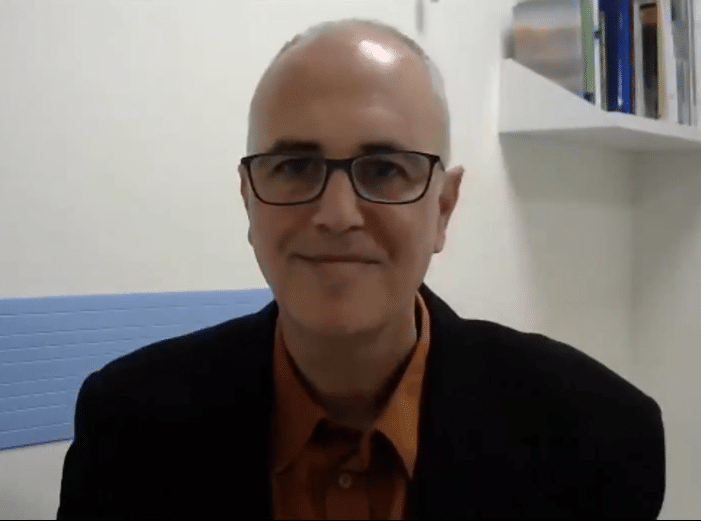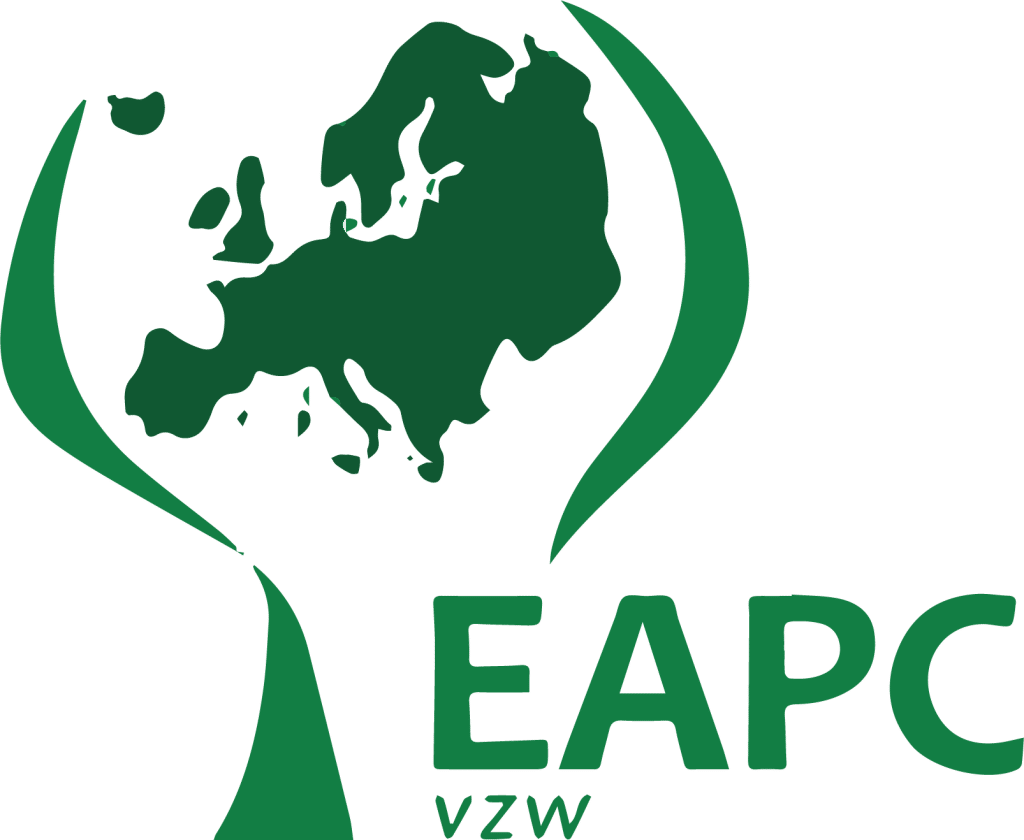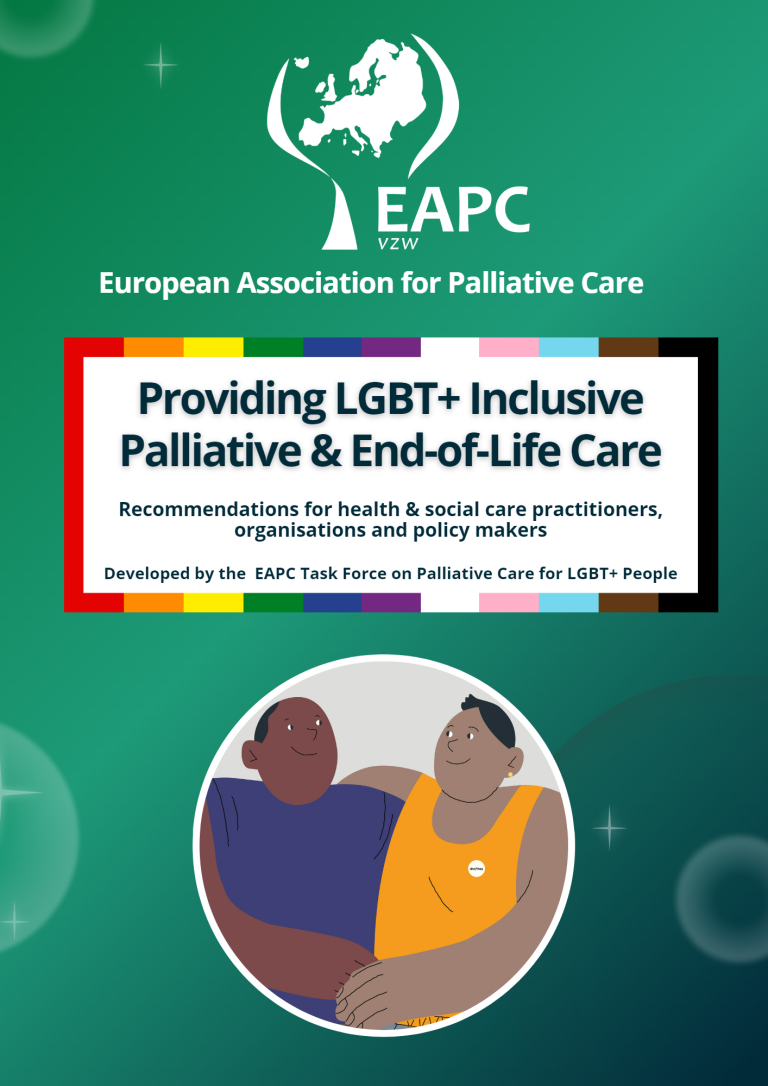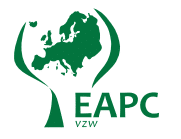Protection against discrimination based on sexual orientation, gender identity and/or gender history is widely variable across the world and attention is required to get this right for the significant populations who identify as LGBT+. Research in some countries has shown that even where such protections are written in law, lesbian, gay, bisexual and/or trans (LGBT) people may not receive the palliative and end of life care they need from health and social care professionals.
In countries where inequality is legally or culturally sanctioned, LGBT+ people face barriers accessing basic healthcare and palliative care. Evidence demonstrates that LGBT people are at increased risk of certain life-limiting illnesses and life-threatening diseases, and at higher risk of mental health linked to discrimination. It is therefore important to ensure that health and social care is inclusive.However, empirical studies led by academics at the Cicely Saunders Institute, King’s College London and University of Hertfordshire, found that in the context of advanced illness LGBT+ people reported multiple barriers to accessing care, at service level and during interactions with health and social care professionals.
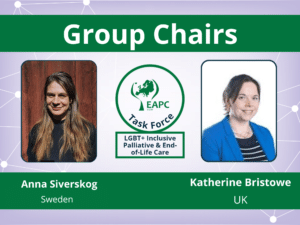
The Task Force is chaired by Richard Harding, Professor of Palliative Care & Rehabilitation, King’s College London, UK and Katherine Bristowe, Lecturer, Kings College London, UK.
A legacy of institutional and historical barriers can also cause invisible stress for LGBT+ people. A systematic review involving the same research team found that LGBT people may face additional stressors during bereavement, such as failure of others in acknowledging their significant relationships, homophobia, and additional legal and financial barriers.
Inclusive, non-discriminatory care is vital for all, and attention is required to get this right for the significant populations who identify as LGBT+. This Task Force will begin seeking to respond to these shortcomings, in order to improve palliative and end of life care for LGBT+ people experiencing life-limiting and advanced illness, and the support provided for their partners and those close to them.
Providing LGBT+ Inclusive Palliative & End-of-Life Care
These recommendations have been developed using resources collated by members of the EAPC Task Force.
LGBT+ is an acronym to include lesbian, gay, bisexual, and trans people, and anyone who considers themselves to have a minority sexual orientation, gender identity or gender history (the relationship between gender identity and sex assigned at birth).
The recommendations bring together evidence and examples of good practice suggested by members and utilised within our countries. This guidance was developed in English in collaboration with task force members from 15 countries. Member countries are responsible for translation and ensuring the guidance is culturally appropriate.
The legal context for LGBT+ inclusion will vary in each country, as well as any requirements from bodies governing health care provision. As such, attention should be given to how recommendations fit with local law and guidance. Special attention is needed for any recommendations that may conflict with local law.
You can download the full document here.
Download the Swedish translation of the recommendations here.
Steering Committe

Dr. Katherine Bristowe
King’s College London, Cicely Saunders Institute

Dr. Anna Siverskog
Jönköping University

Dr. Debbie Braybrook
King’s College London, Cicely Saunders Institute

Hannah Scott

Prof. Richard Harding
King’s College London, Cicely Saunders Institute
Dr. Jane Bromseth
University of Oslo, Department of Interdisciplinary Studies of Health. FRI

Michael Connolly
University College Dublin, School of Nursing Midwifery & Health Systems and Our Lady’s Hospice and Care Services

Axel Doll
Dr. Guillaume Economos
University Hospital of Lyon
Dr. Heiko Gerlach
Freelancer

Dr. Ana Patrícia Hilário
University of Lisbon, Institute of Social Sciences
Natasha Pedersen

Dr. Karin Pool
Rode Kruis Ziekenhuis
Dr. Heiko Gerlach
Freelancer
Natasha Pedersen
Members

Prof. Kathyrn Almack
University of Hertfordshire, School of Health and Social Work

Max Appenroth
Charité Universitätsmedizin Berlin, Institute of Public Health

Anne Baumann
"Department of Palliative Medicine, Uniklinik Köln (University Hospital Cologne)"
Prof. Susan Cadell

Carey Candrian
University of Colorado, School of Medicine

Claude Chidiac
Lebanese Medical Association for Sexual Health
Paul Clift
Independent Consultant
Clément Cormi
Prof. Lee-Ann Fenge
Bournemouth University
Dr. Sean Hughes
Lancaster University, Department of Health Research (retired July 2021)
Dr. Laoridi Héritier
University Hospital of Nîmes
Dr. Esther Janssen
Dr. Roger Thay
Université de Paris Diderot, Groupe hospitalier Diaconesses Croix Saint Simon

Dr. Liadh Timmins
Swansea University, School of Psychology
Dr. Denisa Svobodova
Centrum pro rozvoj paliativní péče, z.ú.

Dr. Donna Wakefield
Dr. Erica Zeni
Academia Nacional de Cuidados Paliativos
Dr. Erica Johansson Afrexio
Karolinska Institutet (guest - nursing student)
Dr. Beat Müller
Palliative Care, Luzerner Kantonsspital, 6000 Luzern 16

Dr. Billy Rosa

Dr. Coman Hennelly
"Irish Association for Palliative Care (IAPC) Royal College of Surgeons in Ireland (RCSI) Doctoral Student"
Dr. Max Kleijberg
Karolinska Institutet, Department of Neurobiology, Care Sciences and Society, Division of Nursing

Kay Kistemaker
Amsterdam UMC, location VUmc

Theodor Pilou Kruse
Ignacio Borque
SECPAL
Enric Martinez Vieites
Mutuam - deputy director of home palliative care teams
Michel Delbue - Luisoni
Palliative TI
Dimitrios Protogiros
